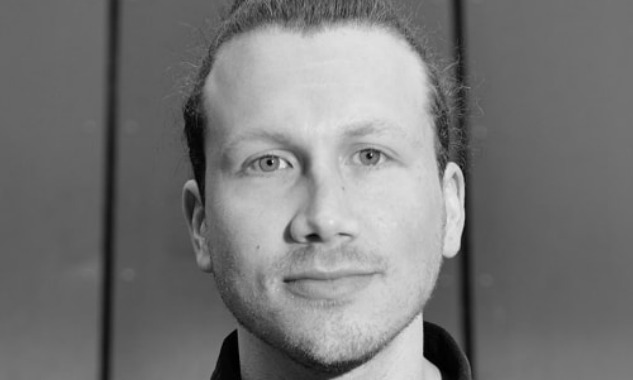New online portal dedicated to social enterprise opportunities
Share

A new online portal that is dedicated to social enterprise opportunities has recently launched.
Social Change Central is the brainchild of social entrepreneur and Myer Foundation Fellow, Jay Boolkin, and corporate lawyer turned social entrepreneur, Anne Lennon.
This new business is a 2016 ANZ Nexus Innovator Award finalist and has already listed over $320m in funding opportunities available to social entrepreneurs. Social Change Central’s mission is to connect Australia’s social entrepreneurs with the critical support they need to convert their passion and ideas for social change into real social impact.
Third Sector had a chat to Jay Boolkin about this new portal and the social enterprise space in Australia.
What is Social Change Central?
Social Change Central is Australia’s first dedicated online hub for social enterprises. It connects, encourages and supports social entrepreneurs through an easy-to-use, comprehensive self-service database, which collates the most up-to-date opportunities available in Australia and internationally. From funding to awards, competitions, exposure, programs and more, our mission is to ensure that Australia’s change makers connect with the support they need to turn their ideas and passion for social change into real social impact.
How/why did you and Anne Lennon come up with this idea?
There has been a lot of growth and interest in the social enterprise sector over the last decade, but the social enterprise ecosystem in Australia is still fragmented and disorganised. One major problem is that finding funding and other opportunities as a social enterprise or aspiring social entrepreneur is difficult and time consuming meaning many promising ideas never get off the ground. The latest opportunities are still typically found via closed Facebook groups, Google searches or organisation-specific newsletters. This challenge is something that Anne and I experienced firsthand in working on our own social enterprise projects. At Social Change Central, we do the legwork, bringing opportunities directly to our change maker members so they can spend less time searching and more time focusing on their core mission.
How will you connect change makers with $320m funding (where is this funding from)?
While a social enterprise can operate as a not-for-profit, in our experience, many entrepreneurs are choosing to take advantage of a for-profit company structure. For-profit social enterprises are able to avoid the administrative and reporting burdens associated with a not-for-profit model, as well as the complexities surrounding deductible gift recipient (DGR) status. For some, a for-profit structure allows them to stay lean and agile and is the most accessible and suitable vehicle for fostering social innovation and finding new and better solutions to society’s most problematic challenges. For others, the decision to trade as a business avoids adding to an already diluted charitable sector or they simply don’t have the time, capacity or resources to pursue not-for-profit registration. However, despite addressing major social issues, as for-profit social enterprises, these organisations are currently ineligible for funding from many grant-makers, trusts, and other philanthropic funders which can be limited to funding organisations with DGR status. The good news is that due to the increasing popularity of social enterprise there are an increasing number of funding opportunities available that do not require charitable status like AMP Tomorrow Fund, Forbes Under 30 $1M Change the World Competition, The Hult Prize Foundation, The Venture etc. At Social Change Central we are committed to constantly searching high and low to find and share such opportunities with our members.
What is the difference between Social Change Central and other enterprises we see in this space?
The sharp growth in the number of social enterprises has been fuelled in part by a growing interest in social enterprise amongst consumers, government, business and philanthropy. This has led to the establishment of a broad range of intermediary support services as well as an increasing number of funding and other opportunities worth millions of dollars annually. However, despite the strong growth in the social enterprise marketplace, the ecosystem that supports it lags behind. There are a few existing opportunity databases that do good work. However they are:
- Geared mainly towards traditional NFPs.
- Focused on mainly opportunities requiring DGR status which many social enterprises don’t have.
- Not social enterprise specific.
- Not comprehensive and tend to be limited to funding opportunities. Having set up social enterprises ourselves, we know that social enterprises need more than funding support to be successful.
Why do you think the social enterprise space is disorganised in Australia? What does the UK do that we are not doing?
There are a number of reasons why the Australian social enterprise space is disorganised such as the limited geographic spread of intermediaries, lack of opportunities for peer to peer learning and development; and limited public awareness of social enterprises and their work. These factors were highlighted in the recent Finding Australia’s Social Enterprise Sector Report, a joint initiative by Social Traders and the Centre for Social Impact. While there have been some steps in right direction, we have seen relatively piecemeal strategic support for social enterprise growth by Australian governments. This is in stark contrast to the UK, where successive governments over more than 15 years have taken a consistently proactive approach in creating an enabling environment for social enterprise. Key factors which have contributed to the development of the UK’s thriving social enterprise sector include the creation of a distinct community company legal form for social enterprise, the Community Interest Company, which enables social enterprises to access donations as well as private equity; the introduction of a widespread public procurement policy through the Social Value Act in 2012 which requires that public authorities take into account wider social and environmental value when they choose suppliers; and the establishment of a range of funds including a £600 million social enterprise capital fund, to invest in social enterprises at different points in their lifecycle, including the start up phase where it can be very difficult to secure financial support.
One year ahead what do you hope Social Change Central achieves and what do you hope the social enterprise sector looks like?
Our vision is a cohesive Australian social enterprise ecosystem which enables social enterprises to thrive resulting in widespread and transformative social change. We believe encouraging increased support for social enterprises and connecting them with available opportunities is a critical step in this process. Our hope is that Social Change Central will:
- Be synonymous with Social Enterprise in Australia.
- Play a catalytic role in turning the currently fragmented social enterprise landscape into a cohesive marketplace for widespread and transformative social change.
- Be an indirect but significant contributor to creating positive social impact.
- Behe go-to platform for Australian social entrepreneurs.

























